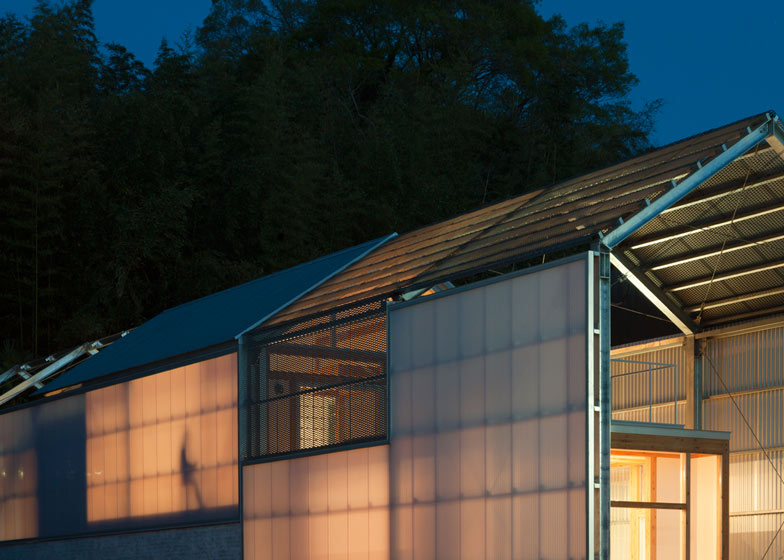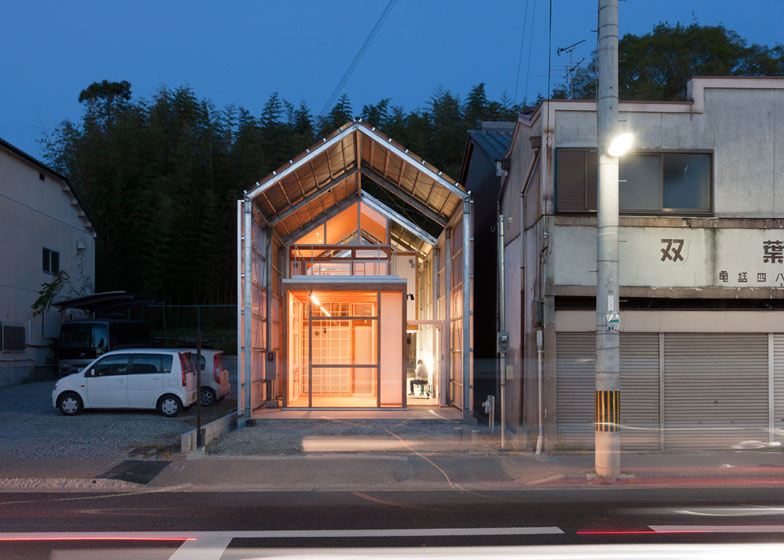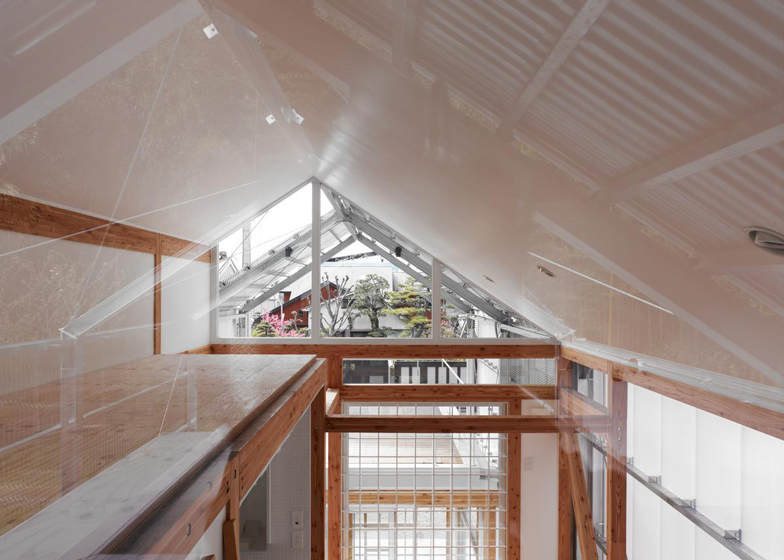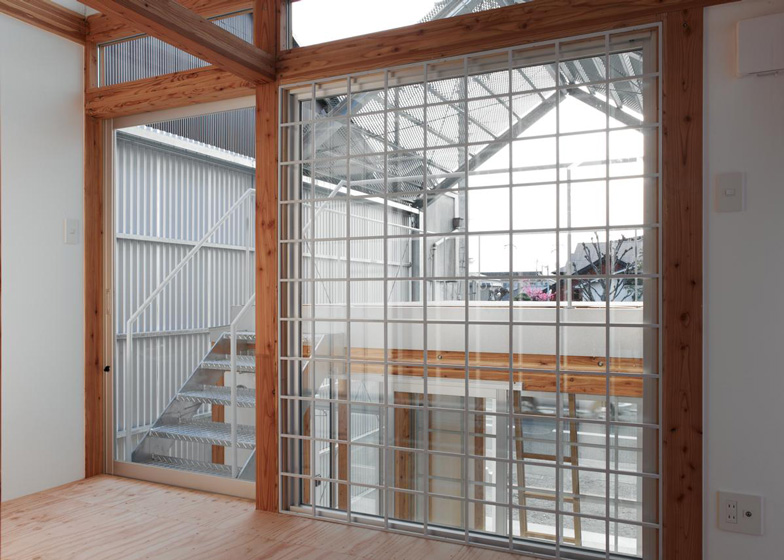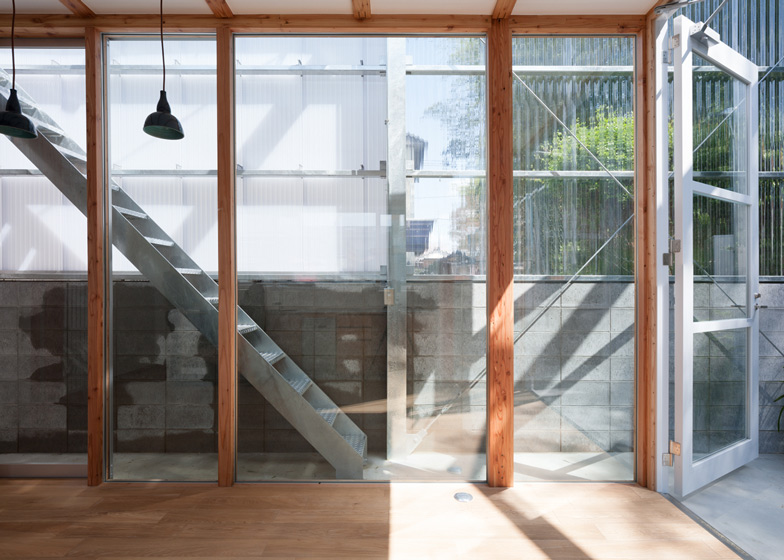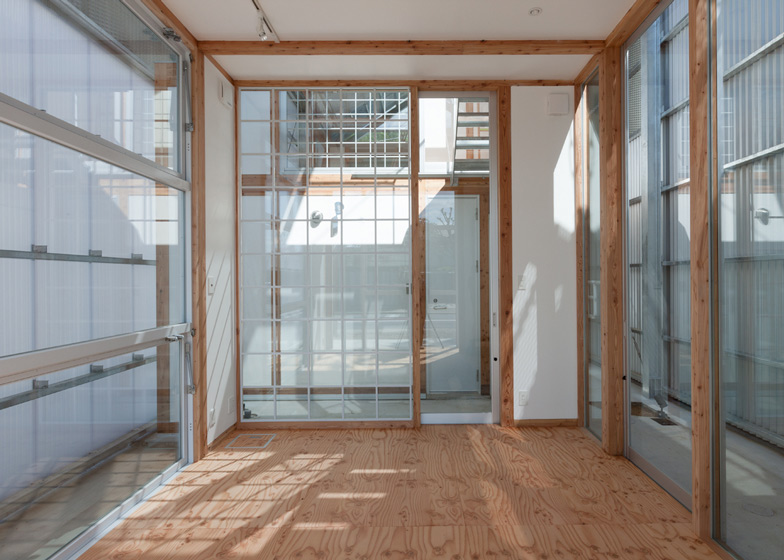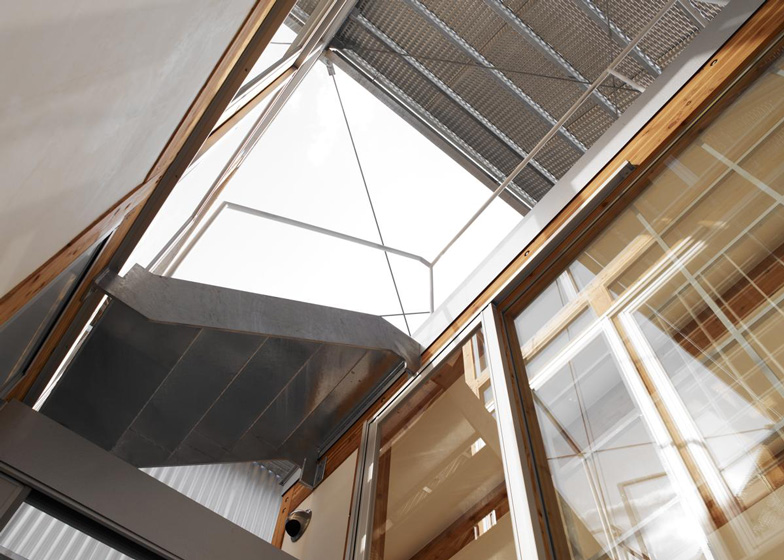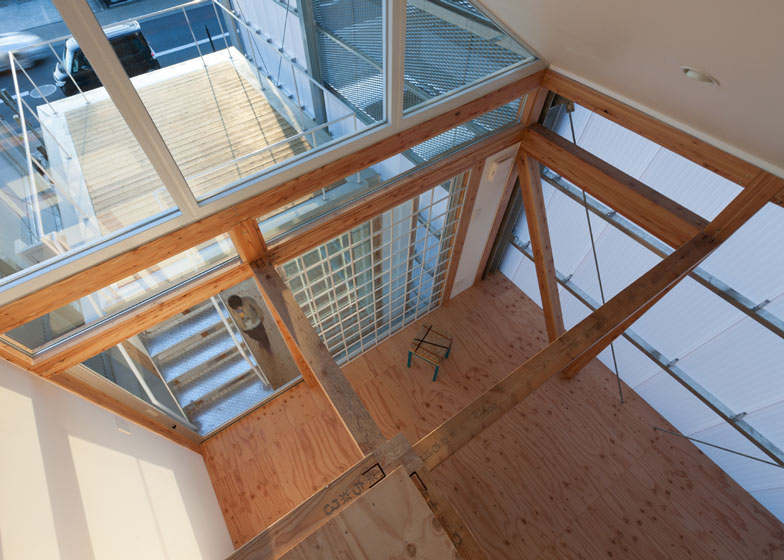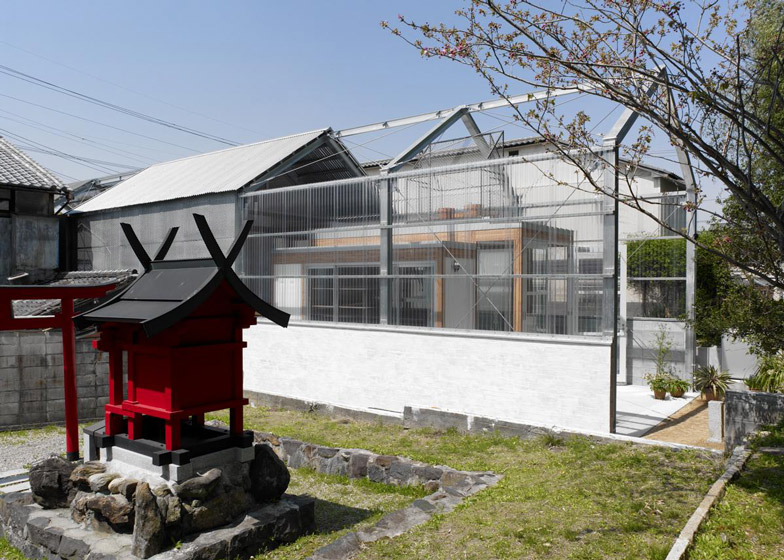Three separate sections built in different cities make up this steel-framed house in Nara, Japan, by Tokyo architects Megumi Matsubara and Hiroi Ariyama (+ slideshow).
Megumi Matsubara worked alongside Hiroi Ariyama of Assistant Studio to design House of 33 Years, which is made from a mixture of exposed raw materials including steel, timber, concrete, steel cables, clear corrugated plastic and glass panels.
Located next door to an ancient Buddhist temple, the house was designed for an elderly couple who decided to move house after 33 years living in their original home together.
Each part of the house was simultaneously built in three separate locations - the cities of Nara, Sendai, and Aomori - before being transported to the site and put together as one unit, which the architects felt would create an architecture that "moves".
The roof shell was built in Nara, while the main rooms were built in Aomori from local timber. Meanwhile, a section of the first-floor was built at the Sendai School of Design and housed a farm in the school's courtyard, before being transferred to Nara.
Architect Megumi Matsubara said the house's location has a special meaning for the couple. "The husband is originally from Nara and had an attachment and melancholic nostalgia with the temple, having spent a considerable amount of his childhood there," Matsubara said.
A layered arrangement of glass panes and wooden structures through the interior create different visual perspectives depending on where you stand inside the building.
"By framing views across different areas, images are continuously produced by the inhabitants' movement," Matsubara said. "Every image is given its own space of possibility, then overlaps as multiple additions to the home to update the family’s memories."
Accessed by steel staircases and a wooden ladder elevated at different heights, the first-floor bathroom is cantilevered and offers residents a view of the temple's bamboo forest while bathing.
This floor is the brightest part of the house, while the smaller, darker room on the ground-floor level is used as a bedroom. The combined living, dining and kitchen space is positioned at the back.
Another project we've featured by Megumi Matsubara is an installation in Tokyo featuring 10 conceptual machines all beginning with the letter 'B'.
Other recently completed houses in Japan include a narrow timber house in Tokyo and a residence with angular cutaways create through the walls, floors and ceilings. See more houses in Japan »
Photography is Tadasu Yamamoto, Shinkenchiku-sha.
Here's a project description from the architects:
House of 33 Years
Megumi Matsubara & Hiroi Ariyama of the architecture firm Assistant are pleased to announce the completion of House of 33 Years after five years since the project's inception. The House of 33 Years is a residence located next to the world heritage Todaiji Temple in Nara, Japan. The house was designed for an elderly couple who decided to move to a new house thirty three years after living in their first house.
The House of 33 Years is a house for a collector who collects memories, whose memory and future exist simultaneously in the same space. By framing views across different areas, images are continuously produced by the inhabitants' movement. Every image is given its own space of possibility, then overlaps as multiple additions to the home to update the family’s memories.
In 2012, during the construction process, the fabrication of the house was partly supported by Aomori Contemporary Art Centre and Sendai School of Design. Its design/fabrication process has been an academic research subject of Adaptable Futures, Loughborough University, UK. The house has been awarded SD Review prize in 2010.
The house consists of multiple pavilions and rooms in wood structure that stand under the big steel-frame house. The relationship between the individual elements defines the character of the house as a whole. Its construction process has been pursued in three separate locations simultaneously; Nara, Sendai, and Aomori. In Nara, the exterior steel roof to cover the whole residence has been constructed on-site.
Then, having accepted offers by two public institutions, Sendai School of Design and Aomori Contemporary Art Centre, to participate in their artist-in-residence programs, the duo decided to build an unknown experience by linking the two institutions through a single residential housing project, to eventually constitute the house in Nara.
They broke House of 33 Years, which had been designed as a single house, into parts suitable for making in the two programs, so that the architecture would "move," so to speak. Each work was also realised as an individual installation piece on which additional features were elaborated, responding to demands from the institution, characteristics of the space, and the chosen method of exhibiting.
In Sendai, Ghost House, a pavilion to sit on the roof, was built with the students of Sendai School of Design. The pavilion is an homage to Ghost House, one of the pavilions scattered on the large premises of the famous house of Philip Johnson and was given the same name. Over the summer it was sitting in the courtyard of a university campus and the students had grown a farm inside.
In Aomori, the main rooms in wood-structure was built and developed together with local carpenters, using materials available in Aomori, as an installation piece Obscure Architecture (House of 33 Years, Study), then to become a part of ‘Kime to Kehai’ exhibition at Aomori Contemporary Art Centre. This work always had a fresh look depending on the movement of the sunlight. Physically, this architectural work remained present in the same position, whereas the natural phenomena created by it kept flowing without stopping. After the exhibition period in each city, those elements were disassembled and loaded on a 4-ton truck, and carried to the destination, Nara, where they were recomposed to form the House of 33 Years.
Project name: House of 33 Years
Location: Nara, Japan
Architects: Megumi Matsubara and Hiroi Ariyama (Assistant Studio)
Client: private
Purpose: private residence
Structural engineer: Mitsuda Structural Consultants
Site area: 189 square metres
Building area: 76 square metres
Total floor area: 104 square metres
Structure: steel frame, wooden
Number of storeys: 2 storeys
Construction period: March 2011 - June 2013

